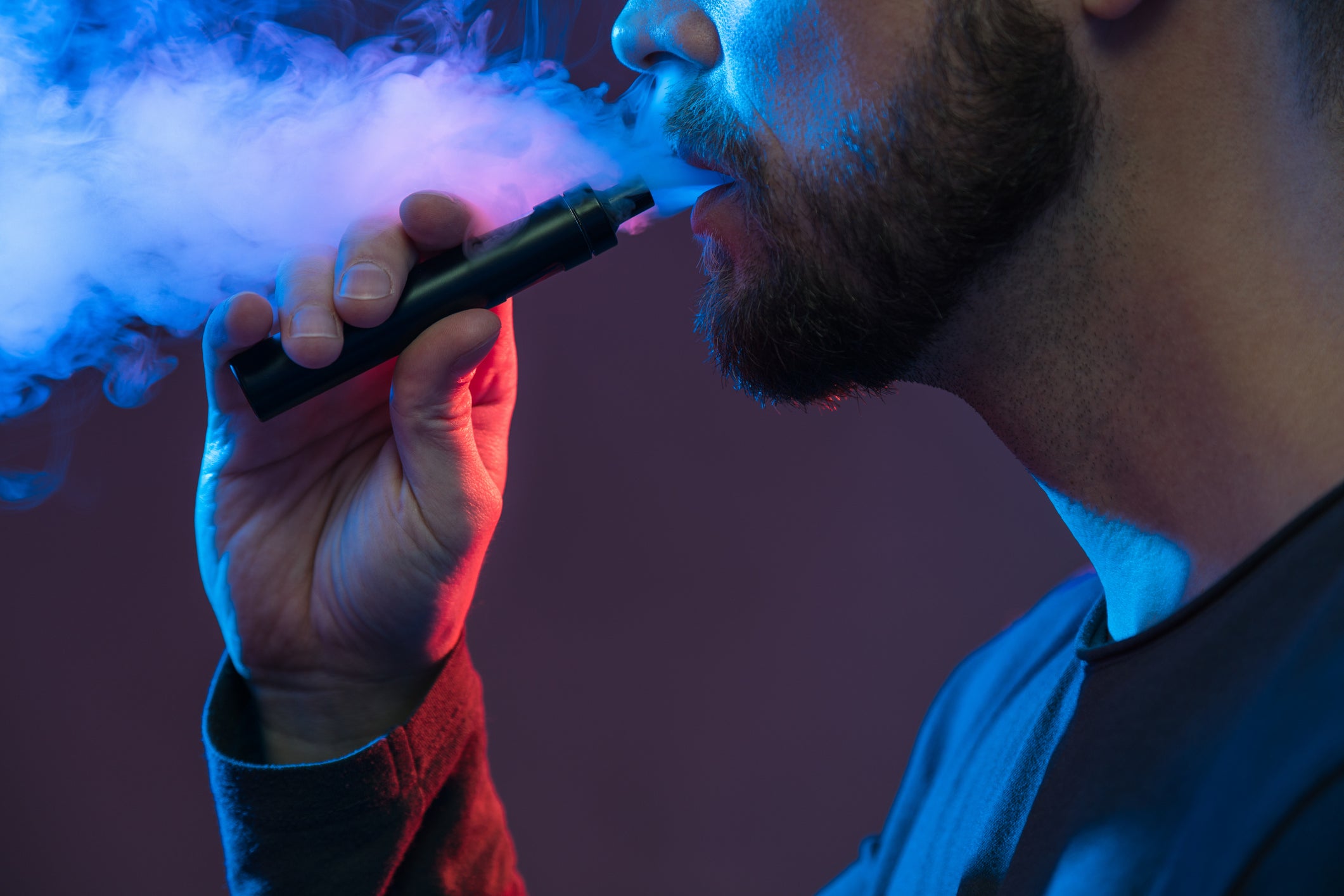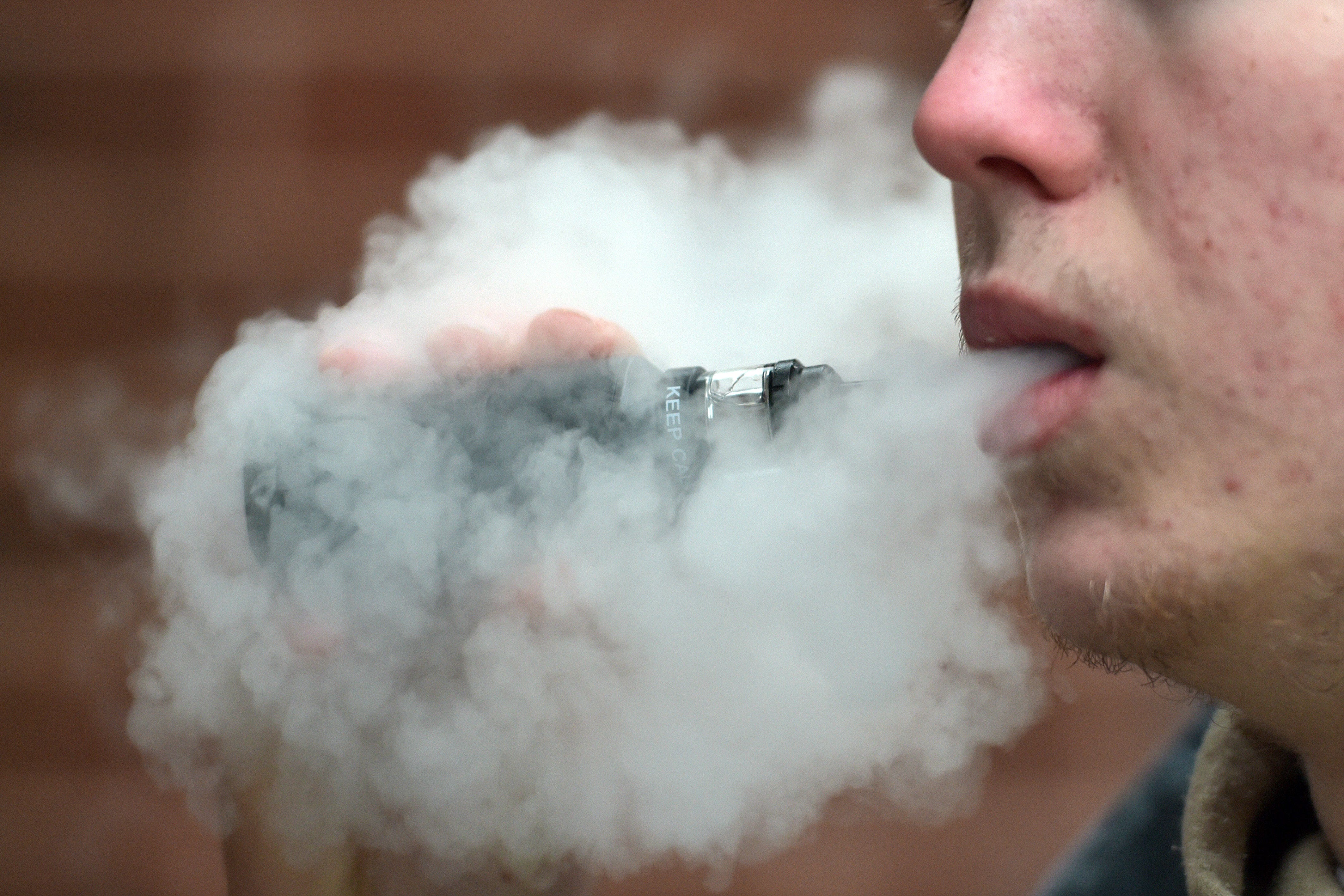Study links lung conditions to young people who vape
Asthma charity says e-cigarette popularity among children and young people is ‘concerning’
Your support helps us to tell the story
From reproductive rights to climate change to Big Tech, The Independent is on the ground when the story is developing. Whether it's investigating the financials of Elon Musk's pro-Trump PAC or producing our latest documentary, 'The A Word', which shines a light on the American women fighting for reproductive rights, we know how important it is to parse out the facts from the messaging.
At such a critical moment in US history, we need reporters on the ground. Your donation allows us to keep sending journalists to speak to both sides of the story.
The Independent is trusted by Americans across the entire political spectrum. And unlike many other quality news outlets, we choose not to lock Americans out of our reporting and analysis with paywalls. We believe quality journalism should be available to everyone, paid for by those who can afford it.
Your support makes all the difference.Young people who vape are more at risk of bronchitis and shortness of breath, research has suggested, even if they also smoke cigarettes.
Researchers from the US tracked the respiratory health of young people in the Southern California Children’s Health Study between 2014 and 2018.
They conducted surveys which asked about people’s vape and cigarette use in the last 30 days. Researchers also included questions on bronchitic symptoms, such as a daily cough for three months in a row, as well as wheezing and shortness of breath.
The study found the odds of wheezing were 81 per cent more likely among past 30-day e-cigarette users than among “never users”.
The odds of bronchitic symptoms were twice as likely, while those of shortness of breath were 78 per cent more likely after accounting for survey wave, age, sex, race and parental education.
Some 2,097 young people with an average age of 17 completed the first poll in 2014, followed by 1,609 of the group in 2015, 1,502 in 2017 and 1,637 in 2018.
The use of cannabis was added for the 2017 questionnaire.
Bronchitic symptoms were reported by 19.5 per cent of people included in the first survey, with 22.5 per cent, 23.5 per cent and 26 per cent reporting it in subsequent questionnaires.
In the first three surveys, 11.7 per cent, 11.8 per cent and 11 per cent of young people had used e-cigarettes in the past 30 days, with the figure rising to 15.5 per cent in the final survey.
They concluded that the study “showed that e-cigarette use was associated with respiratory symptoms after accounting for concurrent cigarette and cannabis use as well as secondhand exposure to each of these products and secondhand exposure to e-cigarettes”.
“The results strengthen epidemiological evidence of adverse respiratory effects of e-cigarettes that is consistent with known effects of e-cigarette ingredients.”

Researchers also said their findings contribute to “emerging evidence from human and toxicological studies that e-cigarettes cause respiratory symptoms that warrant consideration in regulation of e-cigarettes”.
Jon Foster, policy manager at Asthma + Lung UK, said it is “interesting” the study found a link between vaping and lung conditions in young people, but pointed out the regulation around the amount of nicotine and chemicals used in e-cigarettes is “much tighter” in the UK than the US.
“More research would be needed to find out if the situation in the UK is the same,” he added.
“However, given that we still know little about long-term effects, the growing popularity of vaping among children and young people is concerning.”

There have been mounting calls for tighter restrictions on the packaging and marketing of e-cigarettes in England to make the habit less appealing to children.
Last month the Health and Social Care Committee said the government should consider bringing in plain packaging for vapes in line with other tobacco products.
In June, NHS figures revealed 40 children and young people were admitted to hospital in England last year for “vaping-related disorders”, up from 11 two years earlier.
Mr Foster added: “Much stronger action is needed from the government, especially to prevent under-18s accessing vapes.
“Our advice is that only those who smoke and are looking to give up tobacco should use vapes, as they are known to be an effective way to quit. We do not recommend that anyone else take up vaping.”
Charity Action on Smoking and Health (Ash) estimates 9.1 per cent (4.7 million) of adults in Britain vape.
Of those, 2.7 million are ex-smokers, 1.7 million are current smokers and 320,000 have never smoked.




Join our commenting forum
Join thought-provoking conversations, follow other Independent readers and see their replies
Comments